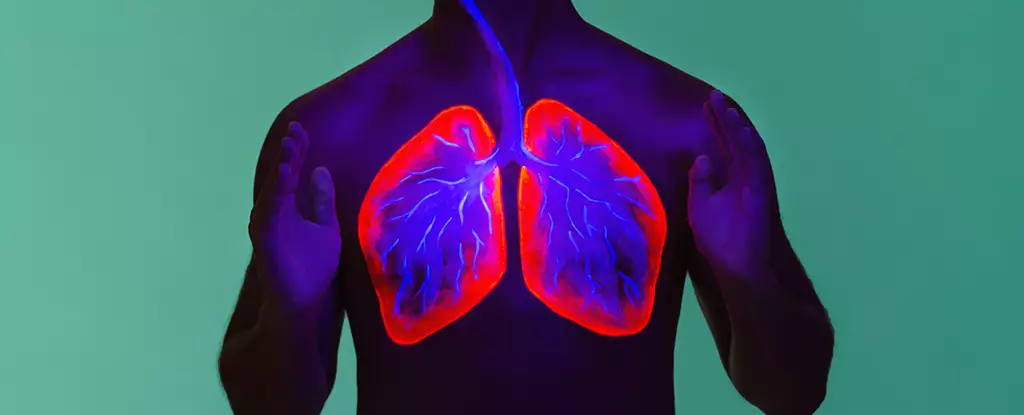For many, the association between lung cancer and its prime risk factors conjures images of smoking and polluted air. However, a groundbreaking study from researchers at the University of Florida and the University of Kentucky challenges this conventional wisdom by unveiling a compelling connection between dietary habits and the risk of developing lung cancer. Their research suggests that glycogen, a molecule that serves as a reservoir for glucose, could be intricately linked to the progression of certain lung cancers, particularly lung adenocarcinoma, which accounts for a staggering 40 percent of all lung cancer cases globally.
Glycogen, often overlooked in discussions surrounding cancer, was found in elevated levels within the tissues of lung adenocarcinoma patients. This revelation opens up new avenues for understanding how dietary components, specifically carbohydrates, can influence cancer growth. The researchers discovered that an increase in glycogen levels corresponded with accelerated tumor growth in test subjects, while a reduction in glycogen curtailed the malignancy’s expansion. This critical insight underscores the need for a paradigm shift in how we view diet in relation to cancer risk.
Novel Methodologies and Insights
The study deployed an innovative technique known as spatial metabolomics, a cutting-edge approach that allows scientists to delve into the nuanced characteristics of small molecules within their specific tissue locations. This method is revolutionary, offering researchers a brand-new lens through which to scrutinize diseases. Ramon Sun, a molecular biologist involved in the study, highlighted that this technique enables a more precise exploration of molecular patterns and interactions, thus paving the way for notable revelations.
The implications of these findings are far-reaching, suggesting that dietary glycogen could act as a power source for cancer cells, allowing them to thrive and proliferate at alarming rates. It essentially transforms glycogen from a simple biological energy reserve into a potential driver of malignancy. Given that glycogen accumulation results from a typical high-carbohydrate diet, it raises questions about the implications of contemporary dietary patterns on health.
The Diet-Cancer Nexus: A Political and Societal Responsibility
This research invites a broader contemplation on public health strategies. Just as anti-smoking campaigns transformed societal attitudes toward tobacco consumption, we need policies and public awareness initiatives aimed at promoting healthier dietary practices. The researchers emphasize that recognizing the connection between diet and lung cancer should become a cornerstone in cancer prevention strategies.
Given that glycogen levels were specifically noted in lung adenocarcinoma samples, rather than in other lung cancer types like lung squamous cell carcinoma, it becomes imperative to pursue further investigations. Such targeted research could unravel fresh insights into the metabolic pathways of lung cancer and lead to significant advances in prevention and treatment.
Transforming Perspectives on Diet and Health
Challenging the traditional notions surrounding dietary influences, the researchers collectively argue for the necessity to reevaluate our approach to cancer risk. Conditions such as pancreatic and liver cancer have long been associated with dietary components, but lung cancer has largely remained outside this narrative. This new research demands that we reconsider lung cancer’s unique position and accept the growing evidence suggesting that a Western-style diet—characterized by high fat and carbohydrate intake—may not just impact cardiovascular health but may also contribute to cancer susceptibility.
As we digest these findings, it is worth considering the broader nutritional landscape. Elevated risks associated with elements like red meat and alcohol consumption may soon extend to the carbohydrates we consume. The dietary shifts our society makes could profoundly influence public health outcomes. Understanding the delicate interplay between diet and health not only fosters individual accountability but also forms a societal obligation to encourage informed dietary choices.
The recent study shines a glaring light on the hypotheses surrounding diet and cancer risk, offering new pathways for research and prevention strategies. As we delve deeper into this nexus, it becomes increasingly apparent that our choices on the plate resonate far beyond mere sustenance—they may well dictate our health outcomes and longevity in ways we are only beginning to understand.

